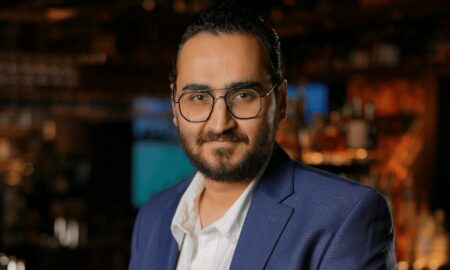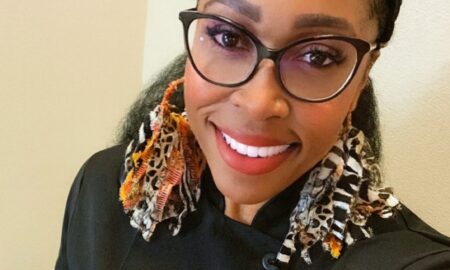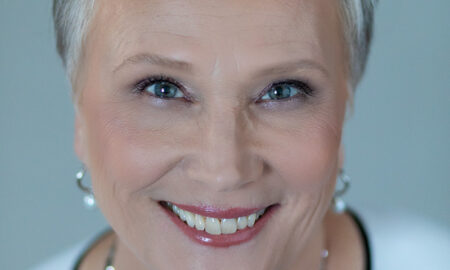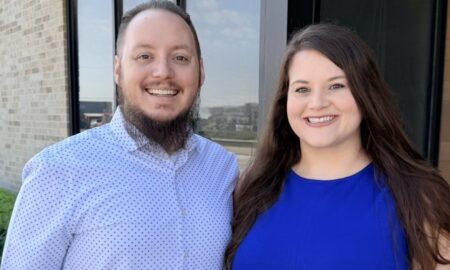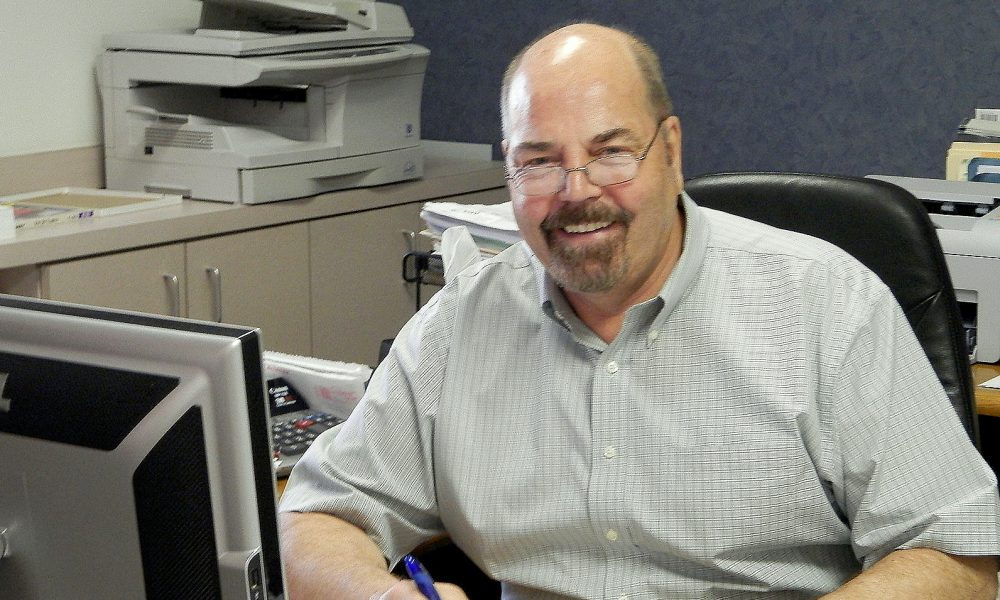

Today we’d like to introduce you to Hans Richter.
Thanks for sharing your story with us Hans. So, let’s start at the beginning and we can move on from there.
My luck started with the fact that I was born on a small farm at a time (1949) when much had to be improvised due to lack of availability or money, mostly both. Growing up my father was a do it yourself tinker who never feared failure. He builds his first tractor from scratch with a junkyard diesel engine, and later another with a Mercedes Diesel engine. Most of our farm equipment was self-built.
I was his apprentice as soon I could walk. At twelve years old, I practiced welding, built my first go kart and crashed it almost instantly. No problem! I fixed it many times after that.
My dad instilled an eager curiosity in me for all technical things.
I must have been 13 or 14 years old when my dad gave me a “Basics of electricity” booklet written before 1900, in German script and said “Can you build that electric motor?” described in it. Of course, I had no choice, and a few weeks later I had a crappy, rattling two coil motor spinning. I proudly showed it off and was praised for it. But now he asked me, “Can you tell me why it’s spinning?”
It took me a while to re-read the booklet and figure it out, but today I’m proud and grateful that I can explain in simple terms how reversing magnetic fields makes a motor run and much more.
After I could explain how it works he told me to build it again but “Make it look better! Good technology looks good”, he said. That still sticks with me until today and sometimes I got teased for it. I couldn’t care less; my Dad was right.
I had to help on the farm, the vineyards, the forest, and the stable. I would still be able to milk a cow with my hands, and fast.
There was a time I owned several bicycles all put together with used parts. But now the local bicycle dealer had that 10-gear racing bike. Ten gears, unheard of. I had to have it. I had money in the bank, because I was taught to save for later. Whenever I got money for any occasion I had to deposit it into my savings account. I asked my dad to buy the 10 gear. He said, you don’t need it and asked me to show him the money.
He didn’t budge and didn’t let me pull the money from my account. I didn’t stop wanting the bike, 235.00 Deutsch Mark was indeed a lot at the time.
So I had my first summer job in a Swiss-owned field nursery growing lettuce, strawberries, beans, you name it. Starting five thirty in the morning, I would be neatly cutting and arranging produce for the early market in Basel, Switzerland; after that pulling weed for the rest of the day. I got yelled at constantly to be faster, I worked my whole summer break to earn the money.
Showing the money to my dad, he took it and we drove straight to the bank and he deposited it into my account.
I was so angry and disappointed that I could not speak to him, crying was not allowed at that age.
We drove towards home and he passed the right turn to the Bicycle shop only to turn the next right and around the block the dealer, a friend of his of course. There it was, ready, clean, with tools and spare tubes. My dad paid for it. Finding my voice again I humbly asked “Why did you do that?”
He simply said, “I wanted you to know how much it is worth, you earned it”.
It was only natural that my interest in engines led to an apprenticeship as an Auto mechanic. Again, I was lucky because I had a Master who challenged and supported me in a way to let me do things my own way almost from the beginning of my learning years. (for about $45.00 a month first year)
We had an Opel Dealership and fixed all kind of motorcycles which I took over entirely in a very short time.
Soon I had enough side jobs tuning up my friend’s and others cycles that I could afford to have better and faster machines. At one time, I had 11 Motorcycles.
My boss was tough and called us names, not for publication, but never stopped challenging us and made sure we did our homework. He went on and let me finish my apprenticeship one year earlier as a reward for good performance. Thanks, Klaus.
After only one year of Journeyman practice, I applied for early access to Master School. Again, my Boss pulled some strings and I got special early admission for Master School.
The rules at the time were four years training as a Journeyman before Master School. I finished early and got a special Master Diploma at 22 stating that I can train apprentices after I turned 24. Rules are rules, sure.
After Master school, too young and just for the adventure, I applied for a Mechanics School Teacher position in Upper Volta (now Burkina Faso) West Africa. They took me! I had to learn French quickly and after 6 Month of preparation school we, my then wife and two-year-old son landed 1972 in Ouagadougou for the journey to Fada N’Gourma, Centre de Formation Professionelle.
After an adaption period, I started teaching apprentices from all over the Region. My first class had 13 Students and they spoke nine different dialects. French was the way to go.
I liked it, doubled my contract after two years and never went back to Europe the whole time. My daughter was born there in 1974.
Like with all schools, money was tight and we started to fix cars, trucks, bicycles, trailers and everything else on wheels as hands on practice for my third and fourth year classes.
In a short time we hired two ex-students as full-time mechanics and, soon after, a parts clerk for supplies. Within a year we financed 70% of the Mechanics School Department with earnings from shop sales.
To motivate my students, I made them build a working steam engine during their time at school. They worked hard, because when it was finished they could take it with them.
I made sure it looked and run good.
In addition, I held Saturday classes to teach entrepreneurship. That was fun to see these young men become street smart businessmen able to calculate their own fictional businesses.
That time in Africa changed my life in many ways. Suddenly at 22 I was Monsieur le Professeur, was hunting big game for meat for our students and witnessed a lot about life and death in a very poor country. I will never forget my neighbors with nine kids, one with polio, one with Down syndrome, singing and clapping hands every evening not knowing what they would eat the next day.
That’s faith!
Back in Germany I started at a privately owned Mercedes Dealer as a General Service Manager. Great owners, learned a world of knowledge, worked a lot and long hours.
We were 40 employees when I started and 16 years later, after we built a new dealership, we had over120.
I started hang gliding in the early years and loved the third dimension.
My Childhood Hero Leonardo Da Vinci said it best: For once you have tasted flight you will walk the earth with your eyes turned skywards, for there you have been and there you will long to return.
Soon I got my license for sailplanes, single engine planes, earned an instructor license and competed all over Europe.
I won the European title for ultra-light in 1988, survived a Helicopter crash and can now celebrate two birthdays every year.
During my time at Mercedes I met Peter Ulrich, a Houston businessman with German heritage, (now mycurrent business partner) on one of his business trips to Zurich, Switzerland.
One of my cab driver customers in Zurich Switzerland had given him my business card.
After many fabulous dinners and good wine in Zurich over a six year period, he invited me two times, (never in the summer), to visit Houston with the plan to open a high quality Mercedes and BMW independent shop.
I moved in 1992 and fell in love with Houston in a short time. (Since I was about ten years old and was allowed to see some “Spaghetti Western” movies, I wanted to be a cowboy).
Also, because I met the love of my life here in the city. She was visiting from Hamburg, Germany. There we would have never met. We married in 1994 and since that time I never wrote a personal check. She is the best thing that ever happened to me.
We were looking for a place to start a business and soon found our current location at Edloe in the heart of Houston.
After only 6 months of building time, we opened our shop with a wine tasting and Oktoberfest in 1994.
Has it been a smooth road?
It was not easy to start from scratch in a competitive business. Every small business owner knows that. We lost quite a bit of money in the first three years, but were persistent and very disciplined on spending.
After 13 Years we were debt free and had a good name in the marketplace.
Our success is owed to a wonderful team of eager to learn and loyal employees, and of course a very nice supporting clientele; great people, many who became good friends and valuable advisors.
We also keep investing in our employees, continued training and the best and newest equipment is key for survival in the high-end car business.
We have a perfect location inside 610, but now pay insanely high property taxes. There is no cap on business property. Our tax doubled in the last three years. We now pay about twice on property tax than our mortgage was when we purchased the land in 1994.
After continued growth for 20 years we feel now, like many businesses, a backlash from declining oil prices. We had to adjust a bit to the new business climate, but are small and flexible enough to survive.
So let’s switch gears a bit and go into the Texas-German Autohaus story. Tell us more about the business.
Texas-German Autohaus specializes in Mercedes, BMW, Porsche, and since two years Audi, repair and service. Our goal is and always will be that quality comes first.
We take on everything. No job is too small or too complicated. Giving up is not in our vocabulary. All our employees know that we all sit in the same small boat. We consistently have to rudder and steer to keep the focused direction.
Everyone knows that a paycheck has to be earned and not the business but the customer pays for it.
We have the tools and experience to repair old vintage cars, because I grew up with them, same as we have to service the newest and fanciest sports cars.
Like all good shops we are connected online with the manufacturers like dealerships and can re-code and install software updates like them and more. We are looking forward to the new technologies the (near) future holds for us. We will be ready.
We maintain a good relationship with many shops and dealers. We help each other and we laugh a lot.
What quality or characteristic do you feel is most important to your success?
Houston is one of the best cities to do business within the US. There is a great variety of people.
I depend on the interaction and the relationship with my customers.
No one ever criticized me because of my German accent. Some jokingly say “keep it, it’s good for business”!
Our customers get honest, straight forward advice about needed repairs and prioritizing on what to do now and what can wait. It’s personal, I learned long time ago that good repair is not enough, the customer needs to understand and feel good about our working relationship. We text or email you pictures before we call and explain needed repairs.
Some repairs can be post-phoned and we help our customers to make the right decisions. The car also has to be clean when picked up; we provide that service as well.
Constant education is important. It’s just natural that our techs team up when a problem is hard to solve. There is always something to learn.
Like in any other profession, one should love what he’s doing, if your heart is not in it, (or, if you are not proud of what you do) you will struggle and get tired of it in a short time.
I feel blessed and am content with the way Houston hums, a great city with a potential the rest of the world greatly underestimates.
We Houstonians look forward to a prosperous future.
How do you think the industry will change over the next decade?
There will be big changes in the automotive business in the future. Think about self-driving cars, fully electric cars and managed individual transportation systems. That’s going to be a huge and competitive new market. All those networked self-driving cars are merely going to be maintained in centralized locations.
Individual car maintenance is going to shrink, but will not go away that soon. I’m not sure how fast the change will happen. Many problems have to be solved.
In my opinion, there are many hurdles to overcome until fully autonomous cars mingle with the existing traffic.
How safe is safe enough? Is our Houston infrastructure ready for those cars? Is the wireless positioning system reliable enough? Think of weather, power outages, traffic jams and accidents.
Some experts say the industry will change more over the next five years than in the last 50. That’s probably correct. But when will the regulations and legislation be ready for the changes? Who has the funding to install the needed hardware for just about 10 to 20 percent of all vehicles?
I personally see the technical changes in sensor technology, mapping, and software much earlier ready and adapted than the legislator deciding on soon needed new rules and laws.
That said, I can barely wait to test drive those new vehicles.
Contact Info:
- Address: 3417 Edloe St.,
Houston, TX 77041 - Website: www.t-g-a.com
- Phone: 713-850-8282
- Email: tga@t-g-a.com
- Facebook: https://m.facebook.com/tgahouston
- Twitter: https://mobile.twitter.com/TexasGermanAuto
- Yelp: https://m.yelp.com/biz/texas-german-autohaus-houston?osq=texas+german+auto+haus
- Other: https://plus.google.com/+TgaHouston







Getting in touch: VoyageHouston is built on recommendations from the community; it’s how we uncover hidden gems, so if you know someone who deserves recognition please let us know here.










